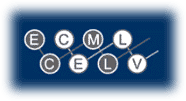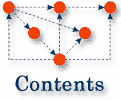
"Quality Control across the Borders
of Eastern Europe"
ELTeCS Project Seminar Report
Galya Mateva
![]()
The main aim of the project was to consolidate the national associations for quality language services by conducting international inspections and intensifying the process of exchanging best practices in the region.
The participating countries in the project were Bulgaria, Romania, Croatia, Federal Republic of Yugoslavia and FYR of Macedonia.
Project outcomes: Five inspections were carried out - 3 in Bulgaria, 1 in Romania and 1 in Jugoslavia. Inspectors from the Bulgarian, Croatian, Romanian and Yugoslavian Associations joined hands to inspect language schools using the Inspection Scheme of the country in which the inspection was taking place. Some of the inspections were shadowed by colleagues from Macedonia who, as a result of the project, are making their first steps towards the establishment of the Macedonian Association for Quality Language Services.
The final stage of the ELTeCS project "Quality Control across the Borders of Eastern Europe". was marked by an evaluation seminar, held on March 15th - 16th in Sofia, jointly supported by ELTeCS and the British Council - Sofia, as well as by the national associations participating in the project.
The seminar facilitators were Dr Galya Mateva from Bulgaria and Dr Laura Muresan from Romania. The seminar was attended by 18 participants and also by Mr. Ed Richards, Manager of ELT and educational programmes at the British Council in Sofia.
The seminar outcomes can be briefly summarised as follows:
- The reports of all inspectors and inspected schools confirmed the hypothesis that inspections had become more transparent, efficient and less threatening.
- A number of case studies emerging from the inspections were discussed and valuable conclusions were drawn.
- The mutual benefits of the inspections were universally recognized.
- The pool of fresh ideas acted as an impetus for revising and improving the national inspection schemes and procedures.
- Three groups of seminar participants drafted important documents - "The Inspector`s Profile", "Guidelines for International Inspections" and "Forms of Co-ordination for Continuous Co-operation".
Overall, it was agreed that the project was the beginning of a long process,
which can go beyond the borders of Eastern Europe. It is believed that
it can serve as a fast track for improving ELT standards across the national
frontiers but also for instilling a new co-operative culture between inspectors
and inspectees.
